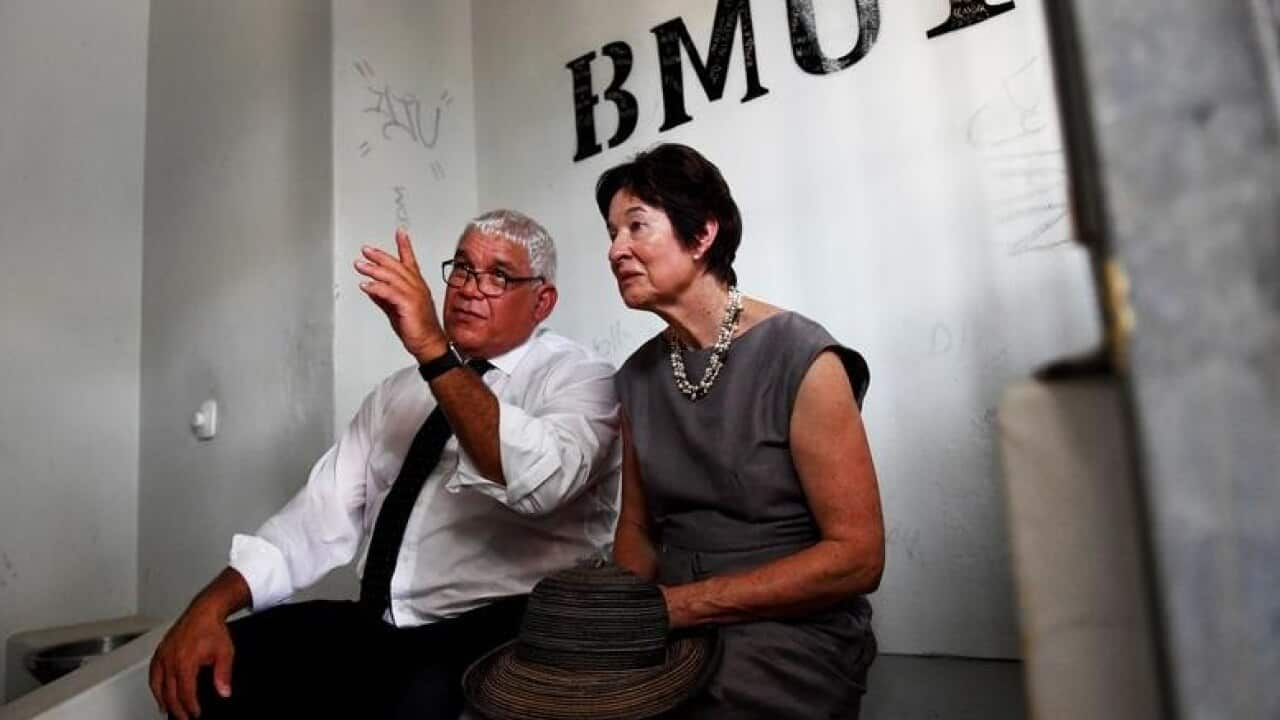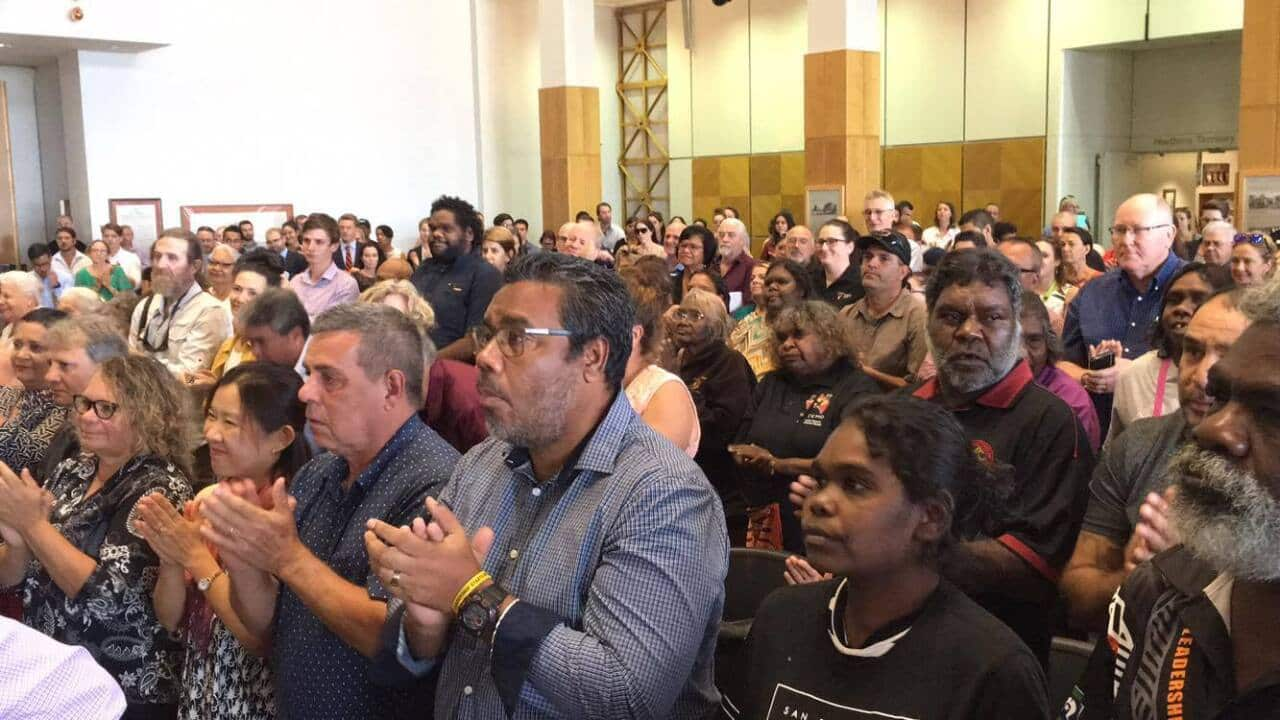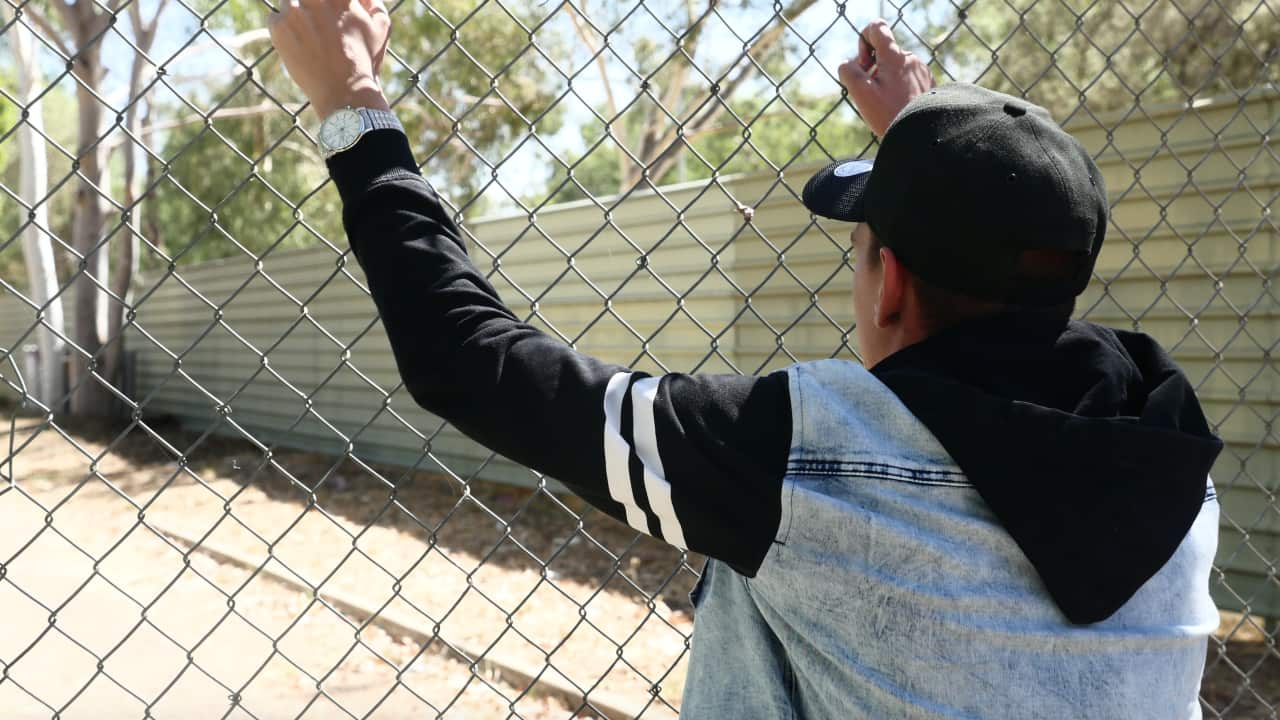A retired judge who presided over the royal commission into Northern Territory youth justice has called for all authorities to stop detaining children under the age of 14.
Margaret White, who sat on the Supreme Court of Queensland, served as co-commissioner alongside Mick Gooda following widespread condemnation of the treatment of detainees at Darwin’s Don Dale Youth Detention Centre.
The pair gave the 2018 Menzies Oration at the Menzies School of Health Research in Darwin on Friday night.
Ms White said research showed that children’s brains were not fully developed in their teenage years.
“No child under the age of 14 should be incarcerated except for the most serious crimes,” she said.
“The combination of natural brain immaturity in children and young adolescents, and the high likelihood that if they continue to offend after police cautions and warnings that they have had adverse childhood experiences which may have compromised their brain architecture, are compelling reasons to raise the age of criminal responsibility to 12 at a minimum.”
Ms White acknowledged that there would likely be objections to her point of view, particularly concerning the risk of assaults and protection of property, but “that is not a good enough reason for failing to act”.
In Australia, the age at which a child can be charged with a criminal offence is 10. The NT government has indicated that will introduce legislation next year to raise the age to 12.
But Ms White pointed out that there are many countries where the limit is much higher.
“I would fervently hope that Don Dale is closed soon,” she added.
Construction on the NT government’s replacement centre will begin next year and is expected to open in 2021.
Mr Gooda said he did not understand why construction was taking so long.
“We found over 50 enquiries, reviews and reports that covered many of the areas we were looking at in child protection and youth detention and if only a few of those recommendations had been fully implemented I would question whether a Royal Commission like ours was ever needed,” he said.
“I have always been of the view that this will be the main challenge for government, but I also don’t underestimate the challenge for the community.
“Pulling together in communities wracked by disempowerment, where the phenomenon of the disempowered turning on each other is a regular experience, will take leadership of the type that has led [to] our survival for over 60,000 years on this continent.”











